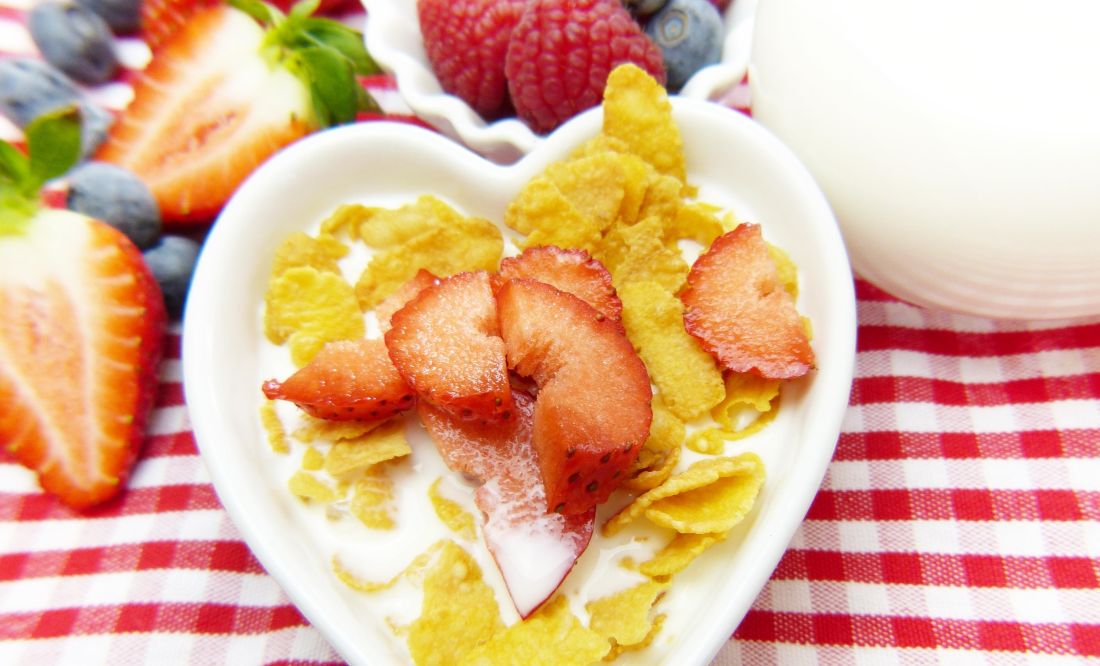When days shorten, it is sometimes difficult to find energy to complete our daily tasks. Many factors are responsible for our level of energy, nutrition, stress management, sleep and physical activity. Surely, during fall, the lack of light does not help recharging our batteries. Since we cannot control the sun, here is an anti-fatigue guide with a few ideas to boost your energy to the maximum with your plate’s content.
1. EAT BREAKFAST FOR A GOOD START TO THE DAY
Breakfast is an important meal, as it provides our body with the energy necessary to start the day and improve concentration. After many hours without eating, our body needs fuel to perform to its full potential. Breakfast allows for the body to break the overnight fast (hence its name break-fast) and replenish the body’s reserves of energy. Many studies have showed that children who eat breakfast are more focused and creative. Breakfast also allows for a better weight management in children and adults.
The ideal breakfast contains carbohydrates, which is the main fuel for muscles and brain, as well as a source of proteins to keep you going until snack. For example, you could choose:
• A bowl of whole grain cereals with milk and fruits
• 2 toasts with peanut butter and a banana
• A smoothie containing milk, yogurt and fruits with a handful of almonds
• Prepared oatmeal with milk and apple slices
• Omelette with vegetables and 1toast
You are not hungry when you get up? Having breakfast is a habit. Sometimes appetite is absent if you ate late the night before, which is not ideal for digestion. For small appetites, the smoothie is a good option.
2. EAT A BALANCED LUNCH
To refill your energies, lunch should contain vegetables, cereal products such as bread, rice, pastas or crackers and a source of proteins like chicken, fish, pulses (leguminous), or tofu. If candies and sweets provide energy on the spot, this energy does not last.
In addition, with the onset of cold temperatures, the shortening of days and fatigue, the immunity system weakens to its lowest. To eat a variety of fruits and vegetables is a good way to strengthen our immunity system and fight germs.
Oups! I ate too much!
When we eat too much, we overload our digestive system which needs to work harder. Therefore, having a big meal at lunch will definitely make you want to have a nap. To avoid energy drops, it is better to have a lighter meal and a balanced snack later.
3. INCLUDE SATIATING SNACKS
Snacks are key to supply the body with new energy between meals. In addition, several studies demonstrate that snacks help in achieving and maintaining a healthy body weight. As a matter of fact, when we are too hungry at meal time, we tend to eat quickly… and too much! Snacks help with the little something we need generally about three hours after a meal which will allow us to appreciate the next meal without devouring it. Here are a few examples of sustaining snacks, containing carbohydrates (fast energy) and proteins (to sustain longer):
• Une One apple and cheese
• Crudités (raw vegetables) and humus
• One oatmeal cookie and a glass of milk
• Grapes and a handful of nuts
4. FILL UP WITH VITAMINS AND MINERALS
Certain vitamins and minerals have a specific role to play in our energy level.
Vitamine B1
This vitamin allows glucose (sugar) to be converted into energy. Our needs are easily answered by adding to our menu whole grain or enriched cereal products, nuts and seeds, legumes, pork, wheat germ and potatoes.
Iron
Fatigue and weakness are symptoms of an iron deficiency. Women, especially teenage girls, sportive women, and those with heavy menstrual periods, are more likely to show an iron deficiency. In order to avoid lower iron level, add meat to your menu (chicken, fish, seafood…) or opt for iron found in vegetables like dark green vegetables, whole grain cereal products and leguminous. In order to maximize the absorption of iron, the iron source is combined to a source of vitamin C, such as citrus fruits, peppers and strawberries.
Magnesium
Fatigue and weakness are also symptoms of a magnesium deficiency, another element found in vegetables, leguminous and whole grain cereal products.
5. LIQUID ENERGY
Lastly, we cannot talk about energy without talking about hydration. When we are dehydrated, we can feel dizzy or weak. Our needs in water are of about 2-3 L per day. In order to drink enough, the best idea is to keep a bottle of water at hand all day!
Coffee
Coffee is part of many adults routine, with reason, as it helps to start off a good day. Caffeine has a stimulating effect on the central nervous system. Every person has a different tolerance to caffeine, but it is generally recommended to avoid drinking over 400 mg of coffee per day (3 cups of filter coffee). In addition, it is preferable to drink coffee in the morning to avoid the effect on sleep, as this molecule remains in our blood during several hours.
In the end no single food has the power to provide energy. By modifying our lifestyle habits, eating a variety of unprocessed foods, integrating many coloured fruits and vegetables, by eating 3 meals per day and snacks when needed, and by hydrating optimally, the better our level of energy will be. Nutrition has an important role to play, but our energy is also largely influenced by our level of stress, our sleep hours and our level of physical activity. If you feel you are lacking energy, it is never too late to change your habits, one step at a time!
Marie-Ève Caplettre – Nutritionnist

http://www.marieevecaplette.com/


Leave A Comment